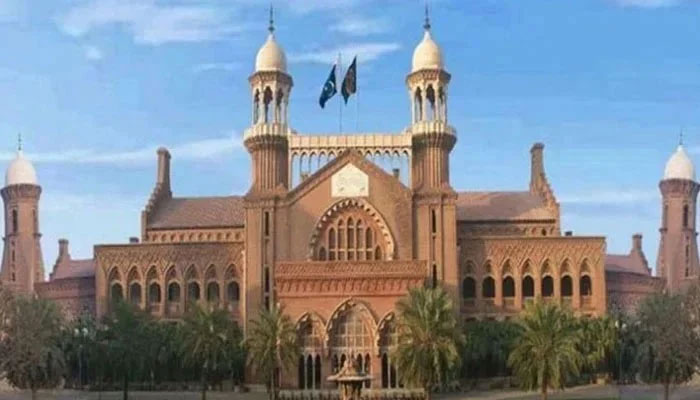LHC strikes down colonial-era sedition law
Constitution of Pakistan gives every citizen right to freedom of expression, argue petitioners in LHC
LAHORE: Justice Shahid Karim of the Lahore High Court on Thursday invalidated Section 124-A of the Pakistan Penal Code, commonly known as the sedition law, introduced in 1860 to suppress political opponents.
The section criminalises anyone who attempts to bring into hatred or contempt or excites disaffection towards, the federal or provincial governments established by law, through words, signs, or visible representation. The court’s decision was based on petitions filed by citizens, including Salman Abuzar and Haroon Farooq, who argued that the sedition law was being used by the government to silence its critics for political purposes.
The petitioners claimed that the sedition law, a remnant of British colonial rule, violates the fundamental rights of freedom of expression enshrined in the Constitution, and serves as an oppressive tool for the suppression of dissent, free speech, and criticism. The court agreed with the petitioners and struck down the sedition law, citing its inconsistency with articles 8, 9, 14, 15, 16, 17, and 19(a) of the Constitution.
The court’s decision could have far-reaching implications for journalists, politicians, and activists who have faced prosecution based on sedition charges, including Javed Hashmi, the late Arshad Sharif, Khawar Ghumman, Adeel Raja, Sadaf Abdul Jabbar, Javed Hashmi, Shahbaz Gill, Mohsin Dawar and Ali Wazir.
-
 Neve Campbell Explains Why She Avoids Watching Scary Movies As She Returns To 'Scream 7'
Neve Campbell Explains Why She Avoids Watching Scary Movies As She Returns To 'Scream 7' -
 Milan Tram Crash Leaves Two Dead, 39 Injured
Milan Tram Crash Leaves Two Dead, 39 Injured -
 Timothee Chalamet Touches On His Personality's Relatability With 'Marty Supreme' Role
Timothee Chalamet Touches On His Personality's Relatability With 'Marty Supreme' Role -
 Benny Blanco Explains Why His Feet Were Dirty During Podcast Debut
Benny Blanco Explains Why His Feet Were Dirty During Podcast Debut -
 Jake Humphrey Shares The Powerful Meaning Behind His Wrist Tattoo
Jake Humphrey Shares The Powerful Meaning Behind His Wrist Tattoo -
 Matthew Lillard Weighs In On His Return To The 'Scream' Franchise After Decades Of Persistence
Matthew Lillard Weighs In On His Return To The 'Scream' Franchise After Decades Of Persistence -
 Travis, Jason Kelce Share Blunt Dating Advice For Men: 'She's Gonna Hate You'
Travis, Jason Kelce Share Blunt Dating Advice For Men: 'She's Gonna Hate You' -
 Australia To Launch First High-speed Bullet Train After 50-years Delay
Australia To Launch First High-speed Bullet Train After 50-years Delay -
 Meghan Markle Turns To Desperate Bids & Her Kids Are Her ‘saving Grace’: Here’s What They’ll Do
Meghan Markle Turns To Desperate Bids & Her Kids Are Her ‘saving Grace’: Here’s What They’ll Do -
 King Charles Gives A Nod To Sister Anne's Latest Royal Visit
King Charles Gives A Nod To Sister Anne's Latest Royal Visit -
 Christian Bale Shares Rare Views On Celebrity Culture Urging Fans Not To Meet Him In Person
Christian Bale Shares Rare Views On Celebrity Culture Urging Fans Not To Meet Him In Person -
 Ariana Grande To Skip Actor Awards Despite Major Nomination
Ariana Grande To Skip Actor Awards Despite Major Nomination -
 North Carolina Teen Accused Of Killing Sister, Injuring Brother In Deadly Attack
North Carolina Teen Accused Of Killing Sister, Injuring Brother In Deadly Attack -
 Ryan Gosling Releases Witty 'Project Hail Mary' Ad With Sweet Reference To Eva Mendes
Ryan Gosling Releases Witty 'Project Hail Mary' Ad With Sweet Reference To Eva Mendes -
 Teyana Taylor Reveals What Lured Her Back To Music After Earning Fame In Acting Industry
Teyana Taylor Reveals What Lured Her Back To Music After Earning Fame In Acting Industry -
 Prince William Shows He's Ready To Lead The Monarchy Amid Andrew Scandal
Prince William Shows He's Ready To Lead The Monarchy Amid Andrew Scandal




